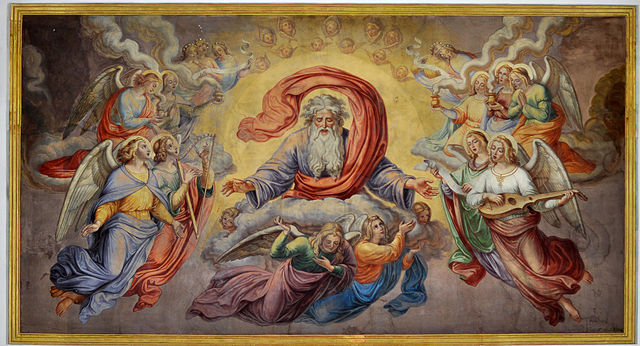Cardinal Says Biden Not a Catholic in Good Standing. Shouldn’t Receive Communion. Would the Pope Agree?

The Catholic News Agency reported Tuesday that Cardinal Raymond Burke, “a canon lawyer and formerly the prefect of the Church’s highest court, has said that Catholic politicians supporting abortion should not receive Holy Communion, including pro-choice Catholic presidential candidate Joe Biden.” That’s the kind of statement that makes you formerly the “prefect of the Church’s highest court.”
Biden, Burke asserted, “is not a Catholic in good standing and he should not approach to receive Holy Communion,” because “a Catholic may not support abortion in any shape or form because it is one of the most grievous sins against human life.”
If that is the case, then Biden is clearly not a Catholic in good standing. Accordingly, Burke stated, “I would tell him not to approach Holy Communion out of charity toward him, because that would be a sacrilege, and a danger to the salvation of his own soul. But also he should not approach to receive Holy Communion because he gives scandal to everyone. Because if someone says ‘well, I’m a devout Catholic’ and at the same time is promoting abortion, it gives the impression to others that it’s acceptable for a Catholic to be in favor of abortion and of course it’s absolutely not acceptable. It never has been, it never will be.”
The good Cardinal is right in a sense. That is indeed the teaching of the Catholic Church. But teaching is one thing and practice is quite enough. Pope Francis has repeatedly made it clear that as far as he is concerned, the real sins, the real serious sins that get you a tongue-lashing from the Roman Pontiff and doubtless a date with hellfire in the age to come, are opposing mass Muslim migration into the West and believing that Islam is not a religion of peace. Abortion? Come on, man! That’s child’s play, so to speak, compared to the big sins.
Last September, Pope Francis, who back in 2014 fired Burke from his position as “prefect of the Church’s highest court,” made clear what the big sins really are as far as he is concerned, when he emphasized that Christians had a responsibility before God to take in migrants: “This loving care for the less privileged is presented as a characteristic trait of the God of Israel and is likewise required, as a moral duty, of all those who would belong to his people.”
On that same occasion, the Pope unveiled a huge statue in St. Peter’s Square, “Angels Unawares,” which depicts a boat full of migrants and a pair of angel wings, so as to emphasize that the migrants into Europe, among whom have been numerous jihad terrorists, rapists, and other criminals, are saintly and deserving of Christians’ support and protection.
What about Christians in Europe who are concerned about the spiraling crime rates and the strain on the welfare systems of nations that have taken in large numbers of migrants? Are they allowed to exercise charity toward their neighbors and friends by opposing mass migration and trying to preserve and defend their own cultural heritage?
Not on your life. Or at least they can’t do that and remain Catholics in good standing. And Francis’ Brave New Church has other newly-minted “grievous sins” as well. The Pontiff has claimed risibly that “authentic Islam and the proper reading of the Koran are opposed to every form of violence.” As ridiculous and readily disproven as this is, it has become a superdogma in the Catholic Church: if you don’t believe that Islam is a Religion of Peace, you will be ruthlessly harassed and silenced by the U.S. Conference of Catholic Bishops (USCCB) and the hierarchy elsewhere as well. The bishops of the Catholic Church are much more concerned that you believe that Islam is a religion of peace than that you believe in, say, the Nicene Creed. And so what possible reason could there be to be concerned about these “refugees”? It’s a religion of peace!
As of several years ago, the U.S. Catholic bishops had 91 million reasons — indeed, 534 million reasons — to turn against the truth and disregard the safety and security of the American people: “In the Fiscal Year 2016, the United States Conference of Catholic Bishops (USCCB) received more than $91 million in government funding for refugee resettlement. Over the past nine years, the USCCB has received a total of $534,788,660 in taxpayer dollars for refugee resettlement programs.” And how much have pro-life organizations given to the Church in that span? Not $534,788,660.
As Ilhan Omar might say, it’s all about the Benjamins.
And so Cardinal Burke may say Biden is barred from Communion, but it’s certain that there are numerous others who will readily administer Communion to the candidate. After all, he’s right on the really important things.
“Leave them; they are blind guides. And if a blind man leads a blind man, both will fall into a pit.” (Matthew 15:14)
RELATED ARTICLES:
Israel PM Netanyahu at UN Warns Hezb’Allah Missile Depot, IStashing More Explosive Weapons in Beirut
The Democrat Party is getting rid of the Jews
Chris Wallace Faces Intense Backlash, Including From Colleagues, Over Bias During Debate
Bartiromo: Durham Report Will Not Be Released Before Election
President Trump Announces Distribution of 150 Million Rapid Coronavirus Tests
EDITORS NOTE: This Geller Report column is republished with permission. ©All rights reserved.

